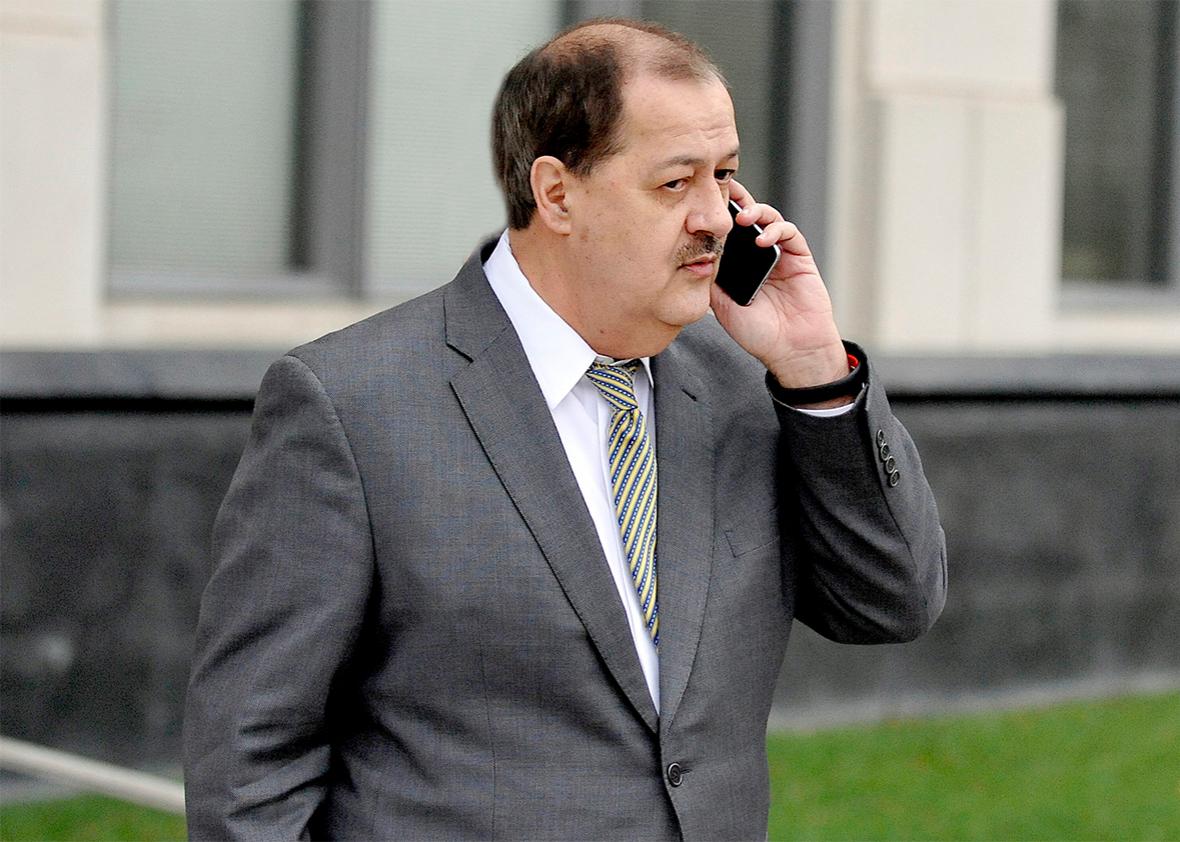Family members of some of the 29 miners killed in a Massey Energy coal mine explosion more than five years ago stood in a federal courtroom in Charleston, West Virginia, Thursday holding hands and praying silently as U.S. District Judge Irene Berger read the jury’s verdict.
Donald L. Blankenship, known as the Dark Lord of the Coalfields, was found guilty of conspiring to evade federal mine safety laws. He was acquitted of two counts of making false statements.
Thus, Blankenship became the first-ever chief executive of a coal company to actually face justice for the deaths of miners, thousands of whom have been killed over the past 150 years in Appalachian pits. U.S. Attorney Booth Goodwin lauded the event “as a landmark day for the safety of coal miners.”
The not-so-bracing news is that after a seven-week-long trial that began Oct. 1 and jury deliberations that lasted 10 days and twice almost ended in mistrial, Blankenship, 65, was only convicted of a misdemeanor. When sentencing comes on March 23, he will get no more than one year in jail and may not serve time at all.
Had he been convicted of all counts—felonies—he would have faced up to 30 years in prison.
During his 11 years as head of now-defunct Massey Energy, Blankenship relished playing his self-styled role of boorish strongman as he thumbed his nose at hundreds of safety violations.
Testimony from prosecution witnesses revealed that he deliberately held off upgrading ventilation and other safety equipment that would have cut down the coal dust and gases that led to the blast at the Upper Big Branch mine. Bill Ross, a former Massey ventilation expert, said that he told Blankenship emphatically in 2009 that something had to be done, but nothing was.
Blankenship, meanwhile, kept up his micro-managing behavior by demanding reports every 30 minutes that his mines were busy “running coal.”
There were 27 prosecution witnesses who made similar statements, but it didn’t seem to make a big impact on the jury. Blankenship’s defense team, headed by William W. Taylor III, a founding partner of Zuckerman Spaeder in Washington, D.C., felt so confident that the government hadn’t made its case that it didn’t bother calling any witnesses of its own.
When the jury members deliberated, they told Judge Berger on two occasions that they couldn’t make up their minds about Blankenship’s guilt or innocence. The jury seemed to be hung up on understanding whether Blankenship had actually misled investors and the Securities and Exchange Commission on his firm’s safety records to prop up stock prices. The judge sent them back, telling them that they didn’t have to convict on all of the charges.
The decision to convict on just the one misdemeanor charge and to acquit on the more serious felonies still dissatisfied Taylor. “We are disappointed, but not as disappointed as we could have been. The case should never have been brought,” he said. He says Blankenship will appeal.
Goodwin had wanted Blankenship’s conviction to send a powerful message to other coal barons who endanger their workers and ruin the environment. But the message now seems rather muted.
Massey no longer exists. Alpha Natural Resources, the Bristol, Virginia. firm that bought it for $7.1 billion in 2011, is bankrupt, as are several major coal companies exploiting the rich coal reserves of West Virginia, Kentucky, and Virginia. Fracking for natural gas and diminished demand for steel-making coal from overseas customers has made for thousands of coal layoffs.
Despite prosecutor’s objections, Blankenship was allowed to go free after his conviction. When he comes back for sentencing, his penalty could be minimal as having to pay a fine. That’s pretty much the way it has always been in the Appalachian coalfields.
